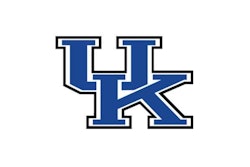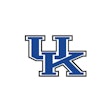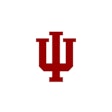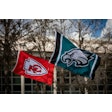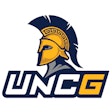Copyright 2014 Philadelphia Newspapers, LLC
All Rights Reserved
Loyal to Snider and in charge of overseeing interests that included the Flyers, Luukko left smack in the middle of a hockey season and with the NCAA Frozen Four hockey championships he worked so hard to obtain on the immediate horizon. He was replaced by Dave Scott and Gary Rostick, two Comcast executives on the corporate side of things.
It was reported by both city newspapers and the Associated Press that "Wheels" and "Sarge" were casualties of the reported 25-year, $2.5 billion television contract forged between the Phillies and Comcast SportsNet, which affords the club an equity share in that branch of the massive Comcast empire. If so, it's hard to believe it was a deal-breaker. More likely, it went something like this:
"Oh, one other thing . . .
"Actually, two . . . "
It also was reported that Comcast will find one replacement for the two deposed broadcasters, reversing the strategy employed in its 2-for-1 on Luukko.
What does all this mean for the average fan? Maybe that Comcast, to this point a rather quiet, little, multibillion-dollar entity, has decided to become more overt in the day-to-day operations of its sports entities.
And that might not be good news for Ruben Amaro Jr.
The Phillies have been extremely patient with their general managers over the years, regardless of results. Lee Thomas lasted nearly 10 seasons, even though his teams reached the postseason once. Ed Wade, his assistant for much of that term, succeeded him and made it through 2005, despite no postseason appearances. The Phillies then hired Pat Gillick, who resigned following the 2008 World Series victory.
An assistant under both Wade and Gillick, Amaro has been the general manager since, supplementing a home-grown core of stars with highly accomplished and high-salaried position players and starters, reaching the postseason three consecutive seasons until age, injuries and his own miscalculations eroded that foundation into its current status:
A hope-infested house of cards.
It's easy to blame Amaro for this. Now. But not that long ago, he was lauded for propping up their run of five straight division titles.
You say Mike Adams, and I say Roy Oswalt.
You say Delmon Young, and I say Pedro Martinez.
You say Jonathan Papelbon, and I will remind you that Amaro nearly signed Ryan Madson to a 4-year, $44 million offer instead.
As that guy from the AT&T commercials asks those cute, little kids, "Which is better . . . ?"
You say Chad Qualls in 2012, Chad Durbin and Mike Adams in 2013, and I'll remind you that Michael Stutes, Antonio Bastardo and David Herndon all appeared to be developing mainstays when they combined to appear in 166 games during the 102-win 2011 season. Maybe he should have expected veteran arms to break down or go AWOL, but none of those guys was older than 25.
You say trading away Cliff Lee the first time for what amounted to a bag of peanuts? I say trading for him the first time for just a little more than that, and signing him again for much more than that.
And, I'd say repeatedly, it's a healthy sign that Amaro - and the deep pockets he represented - were willing to correct a mistake, no matter how costly. Because it used to work the other way back in the '90s.
In fact, that was the recurring theme of my defenses: that the GM weaned under Wade and tutored by Gillick was willing and enabled by ownership to cover expensive mistakes with expensive solutions, buying time for the players his regime drafted to mature into the next era's stars, saving the Phillies from sinking into the bottom-dwelling abyss that marked Wade's more frugally run era of the late '90s and early 2000s.
Except that now, as this team heads toward that abyss, the next era's stars are not exactly riding in from the horizon.
And that makes defending Ruben a bit of a challenge these days. Is he rebuilding? Then why Marlon Byrd? Is he going for broke? Then why Marlon Byrd? Rather than expressing an organized plan going forward, Amaro's state-of-the-team answers almost always sound like those word problems that gave me headaches in high school. You know, the ones that start, "If Ruben had 200 apples and he gave Ryan 25 apples each year for 5 years and Chase 25 apples for 2 years and Carlos 26 apples for 3 years and then Comcast then gave him 2.5 billion apples for 25 years . . . ?"
And if they give me headaches, imagine being one of those smart, obscenely rich Comcast guys. I mean, they just dumped a guy who had been broadcasting in some capacity for 37 years and another guy who was a popular player and team ambassador before his foray into the broadcast booth.
You don't think there might be an "Oh, one more thing" ending to the next meeting of broadcast partners?
Or maybe even a "First things first" start?
Email: [email protected]
On Twitter: @samdonnellon
Columns: ph.ly/Donnellon
Terms and Conditions Privacy Policy

















